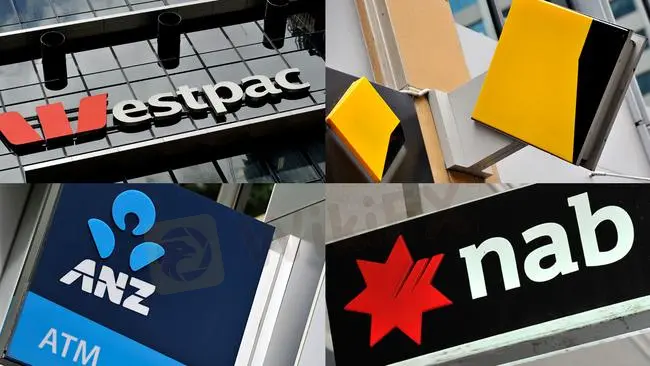简体中文
繁體中文
English
Pусский
日本語
ภาษาไทย
Tiếng Việt
Bahasa Indonesia
Español
हिन्दी
Filippiiniläinen
Français
Deutsch
Português
Türkçe
한국어
العربية
AU: Banking boss pledges cash rate as homeowners wait for next hike
Abstract:Australian households are being stretched to the limit by our cost of living crisis and rising interest rates – but the Reserve Bank has some small comfort for those doing it tough.
Click Here: After you read it, Daily Routine with WikiFX
The RBA is all but certain to raise the cash rate again when it meets next Tuesday, but governor Philip Lowe said it wouldn't be as large as many anticipated. He said an interest-rate increase of 0.75 percentage points is “off the table” this time.

In fact, he suggested the central bank will likely consider “graduated steps” in July, implying a 0.25 or 0.5 percentage point increase.
The RBA raised Australia's official cash rate to 0.35 percent from 0.1% in early May, a more severe increase than the 15 basis point jump most experts had projected.
In June, the board raised the official cash rate by 50 basis points to 0.85%, catching experts off guard with the “super-sized” rate hike.
Dr. Lowe's latest statements seem to have poured cold water on speculations the official cash rate might reach 4% in 2022, as the RBA would have to declare at least one 0.75 percent raise.
He admitted the RBA had a “narrow path” to curb inflation without creating a recession.
He warned that a change in the nation's “inflation psychology” would drive ever-rising salaries and prices, leading to higher interest rates.
Dr. Lowe said there is a narrow route to reducing inflation without hurting the economy.
Businesses feel secure raising prices, which encourages workers to demand salary raises.
“It's not formal pay indexation, but it's indexation of a kind because individuals with high inflation expect compensation, especially with a low unemployment rate,” Dr. Lowe said.
There's a shift in the country's inflation psychology, but it's not reflected in survey-based inflation forecasts.
“If people worry we can't create a credible road back, the shift in mentality could be pretty durable, and we know where that leads.”
It causes chronic inflation, and higher interest rates and a recession are needed to reduce it.
Dr. Lowe believes inflation will begin to ease in early 2023, but it will take “a couple of years” to reach the 2-3% target.
Disclaimer:
The views in this article only represent the author's personal views, and do not constitute investment advice on this platform. This platform does not guarantee the accuracy, completeness and timeliness of the information in the article, and will not be liable for any loss caused by the use of or reliance on the information in the article.
Read more

Silver surges past $33—are you ready for what comes next?
Silver has once again become the center of attention in global financial markets.

171 years! One of this country’s largest crypto-related fraud
A federal court in Brazil has handed down one of the harshest sentences in the country’s history for a crypto-related fraud, jailing three executives of the now-defunct Braiscompany scheme to a combined 171 years behind bars. The case, which saw some 20,000 investors lose approximately R$1.11 billion (about USD 190 million), underscores Brazil’s intensifying crackdown on unregulated cryptocurrency operations

Japan Issues Urgent Warning on $700M Unauthorized Trades
Japan's FSA warns of $700M in unauthorized trades from phishing attacks on brokerage accounts. Cybersecurity threats continue to rise in the country.

Protect Your Portfolio in the Storm | What Are Safe Haven Assets?
Gold surged to an all-time high on Tuesday, driven by renewed weakness in the US dollar, ongoing trade war tensions, and critical remarks from President Donald Trump aimed at the Federal Reserve. These factors fuelled strong demand for safe-haven assets, pushing bullion above US$3,485 an ounce for the first time. But what exactly are safe haven assets? Why is everyone raving about them?
WikiFX Broker
Latest News
eXch Exchange to Shut Down on May 1 Following Laundering Allegations
How a Viral TikTok Scam Cost a Retiree Over RM300,000
JT Capital Markets Review
FCA Proposes Simplifying Investment Cost Disclosure for Retail Investors
Fresh Look, Same Trust – INGOT Brokers Rebrands its Website
FCA Issues Alerts Against Unauthorised and Clone Firms in the UK
Consob Orders Blackout of 9 Fraudulent Financial Websites
Tradu Joins TradingView for Seamless CFD and Forex Trading
Japan Issues Urgent Warning on $700M Unauthorized Trades
Silver surges past $33—are you ready for what comes next?
Currency Calculator


